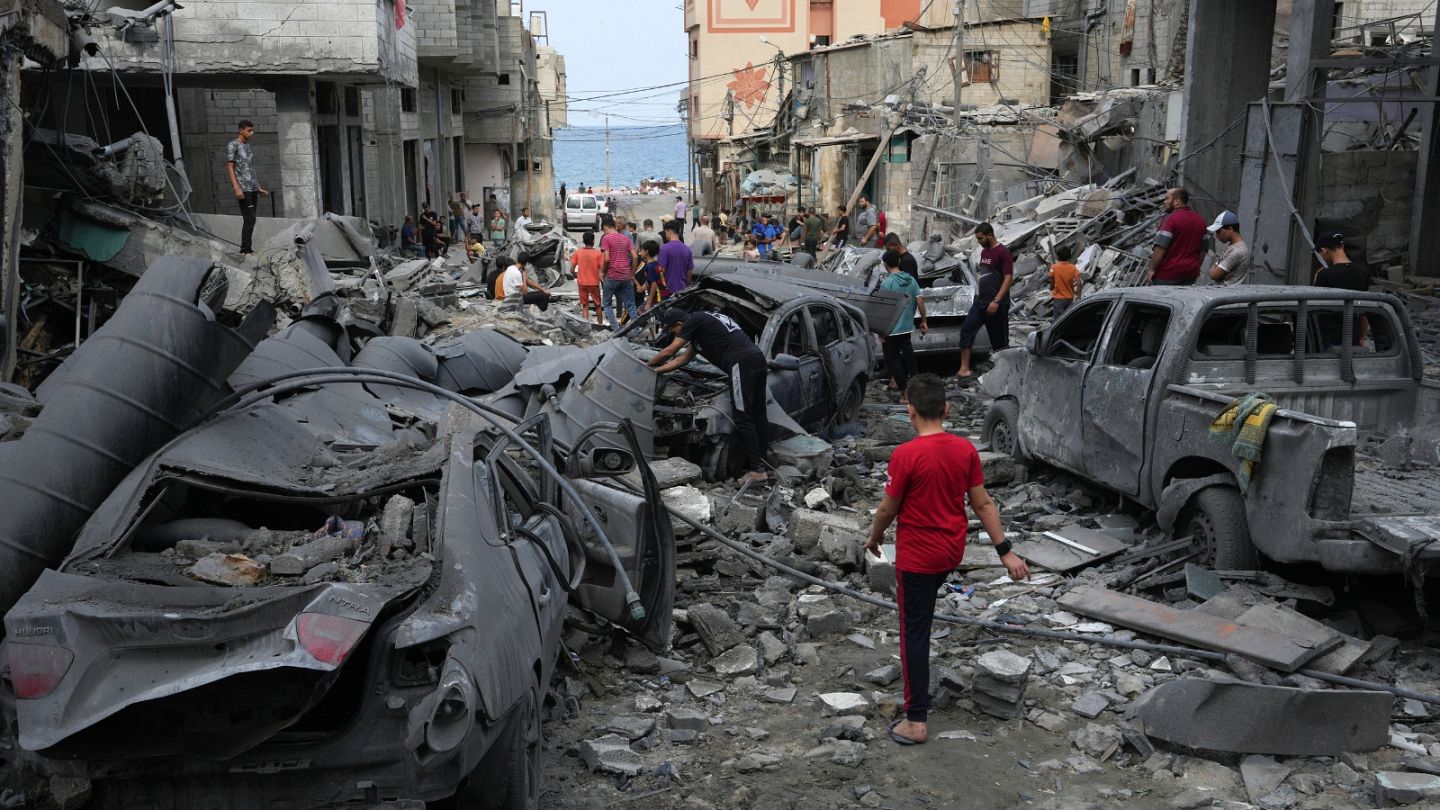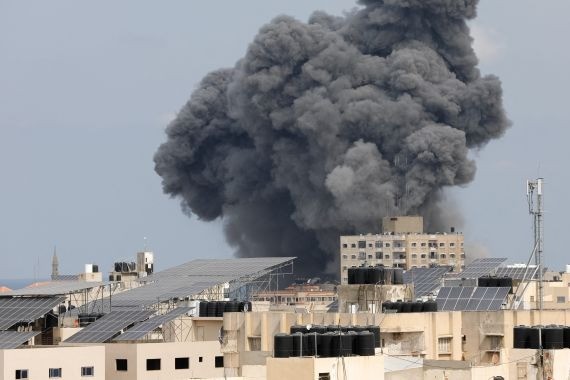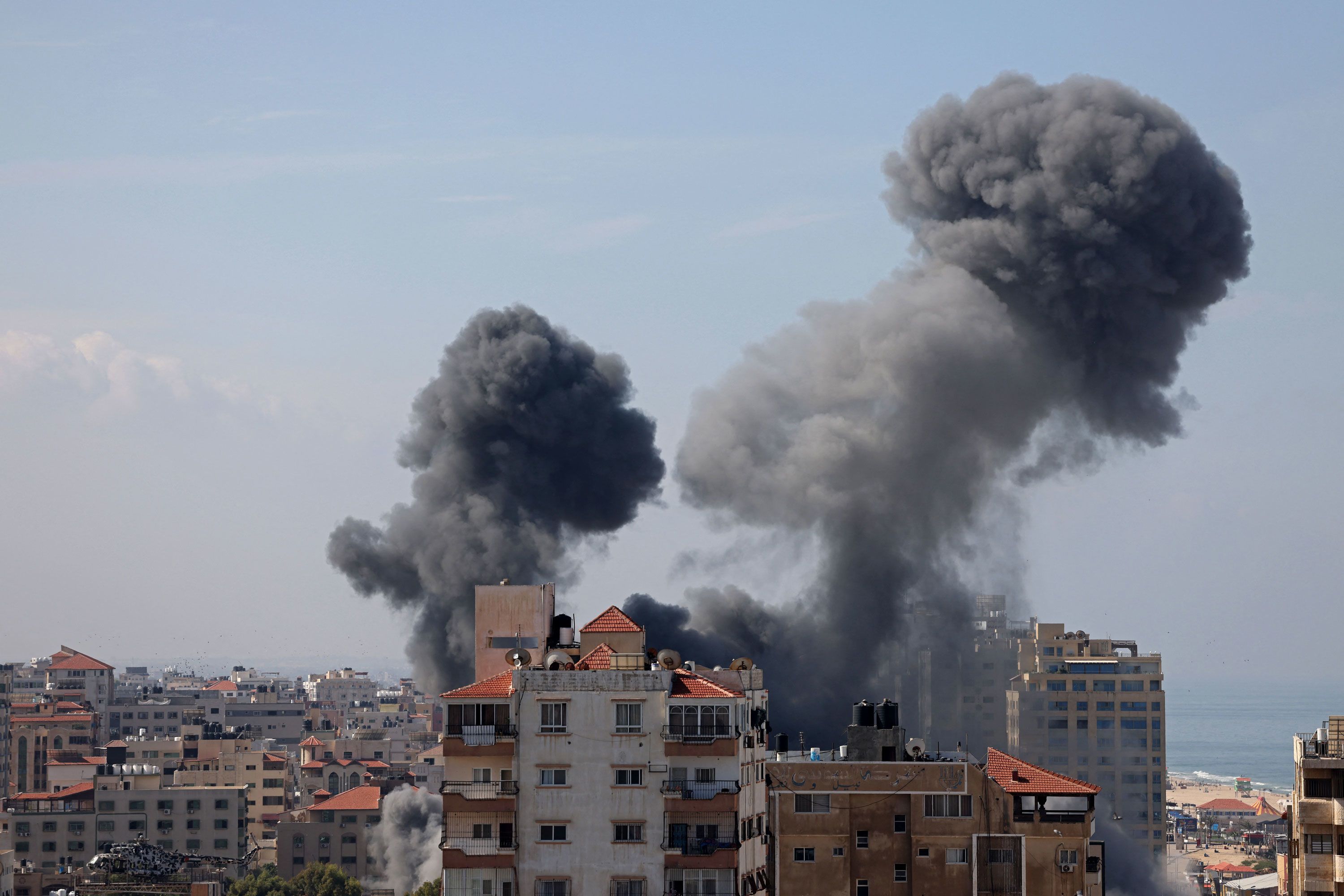Israel Imposes Stringent Blockade on Gaza in Ongoing Conflict

Israel Imposes Stringent Blockade on Gaza in Ongoing Conflict
In the midst of an escalating conflict between Israel and Hamas, Israeli Defence Minister Yoav Gallant has announced a “complete siege” on the Gaza Strip, sparking international concern over the humanitarian consequences of such a move. The blockade, which includes restrictions on essential supplies such as electricity, food, water, and fuel, has raised questions about the ethics and impact of such measures in a war that has already claimed the lives of over 1,100 people in both Israel and Palestine.
The decision to impose a complete siege on Gaza marks a significant escalation in the ongoing conflict, which began with tensions in East Jerusalem and has since spiraled into a full-blown military confrontation. The conflict has drawn widespread attention and condemnation from the international community, with calls for an immediate ceasefire and a return to negotiations to resolve the underlying issues.
Israel’s Defence Minister, Yoav Gallant, defended the blockade, stating that Israel views itself as being at war with Hamas and was “acting accordingly.” He went further to describe the members of Hamas as “human animals,” a characterization that has drawn criticism for its dehumanizing language and its potential to further inflame tensions.
The blockade itself entails a series of measures aimed at isolating and cutting off supplies to the Gaza Strip, where Hamas holds sway. These measures have far-reaching implications for the civilian population of Gaza, raising concerns about the impact on innocent civilians caught in the crossfire.

1. Cutting off Electricity: The decision to cut off electricity to Gaza is particularly concerning, as it affects the daily lives of the 2 million people who reside in the territory. Without electricity, hospitals struggle to function, refrigeration of essential medicines and vaccines becomes impossible, and households are left without basic amenities such as lighting and heating.
2. Restricting Food and Water Supplies: The blockade also includes restrictions on the supply of food and water to Gaza. This exacerbates an already dire humanitarian situation, as many Gazans rely on international aid for their basic sustenance. The scarcity of food and clean drinking water poses a severe threat to the health and well-being of the civilian population.
3. Limiting Fuel Supplies: Limiting fuel supplies further compounds the crisis, impacting not only the ability to generate electricity but also transport, sanitation, and heating. Hospitals, in particular, rely on fuel to power generators during frequent electricity shortages.
The international community has reacted strongly to these measures, with numerous world leaders and humanitarian organizations condemning the blockade and calling for its immediate reversal. The United Nations Secretary-General, in a recent statement, expressed deep concern over the humanitarian consequences of the blockade and urged all parties to exercise restraint and prioritize the protection of civilians.

Human rights organizations have also raised alarms about the potential violation of international law. Blockades that intentionally target civilian populations can be deemed illegal under international humanitarian law, particularly if they result in disproportionate harm to civilians.
The blockade has had a profound impact on the people of Gaza, many of whom have been living under the shadow of conflict for generations. For Gazans, life has become a cycle of uncertainty and suffering, with limited access to basic necessities and constant fear of violence. The imposition of the siege only exacerbates their plight.
In response to the blockade, Hamas has continued its rocket attacks on Israeli cities, further escalating the conflict. Israeli civilians living in cities like Tel Aviv and Jerusalem have been forced to seek shelter from the barrage of rockets, and casualties have been reported on both sides.
The international community, including key actors such as the United States and the European Union, has been working tirelessly to broker a ceasefire and initiate dialogue between the conflicting parties. However, reaching a sustainable peace agreement remains a daunting challenge, as deep-seated grievances, historical conflicts, and political considerations continue to fuel the violence.
It is essential to recognize that the ongoing conflict in Israel and Palestine is a complex and deeply rooted issue, with historical, political, and religious dimensions. The suffering of innocent civilians on both sides underscores the urgency of finding a peaceful and just resolution to the conflict.

As the world watches the situation unfold in Gaza, there is a growing sense of urgency for a ceasefire and renewed diplomatic efforts. The international community, including the United Nations and regional organizations, must continue to work tirelessly to bring an end to the violence and address the underlying causes of the conflict.
In conclusion, the decision to impose a “complete siege” on Gaza by Israel, as part of the ongoing conflict with Hamas, has raised grave concerns about the humanitarian consequences and legality of such measures. The blockade, which includes cutting off electricity, restricting food and water supplies, and limiting fuel, has had a profound impact on the civilian population of Gaza, exacerbating an already dire humanitarian crisis.
The international community, while condemning the violence and advocating for a ceasefire, faces the daunting task of finding a lasting and just solution to the complex and deeply rooted conflict in the region. The suffering of innocent civilians on both sides underscores the urgency of these efforts, as the world watches and hopes for a path toward peace.




